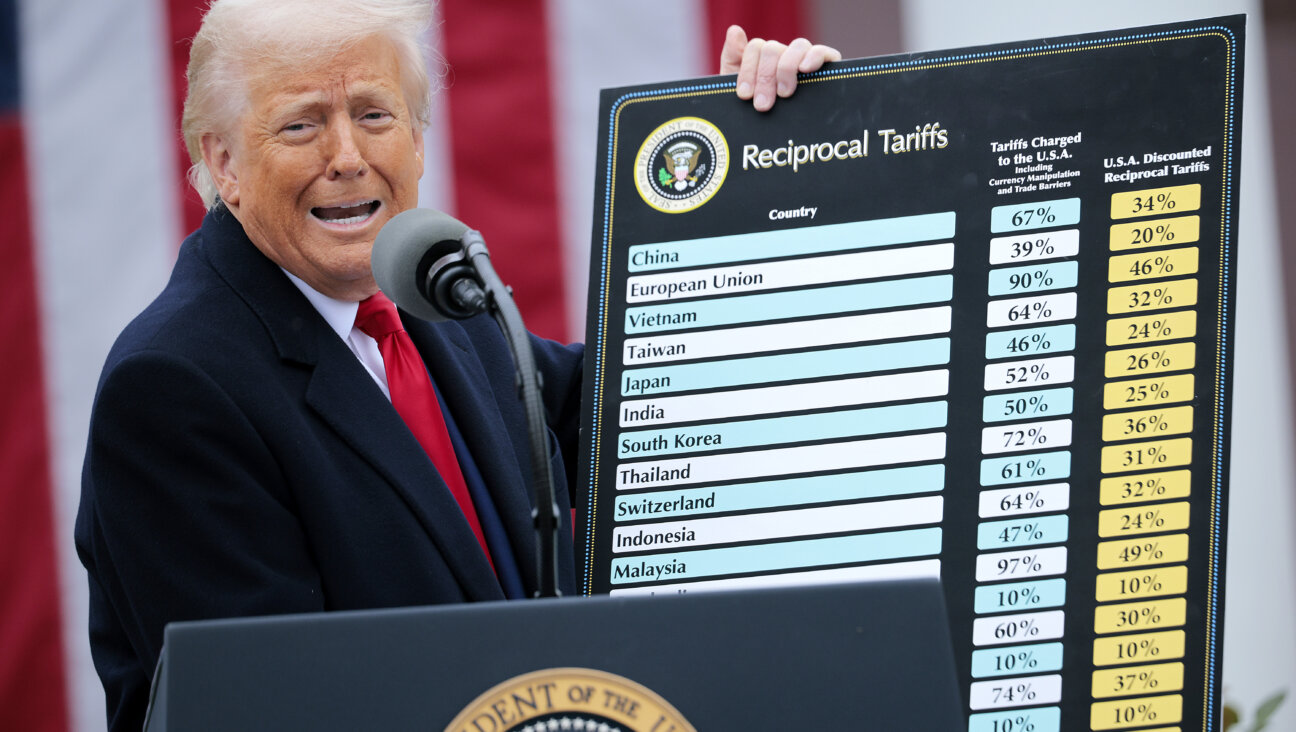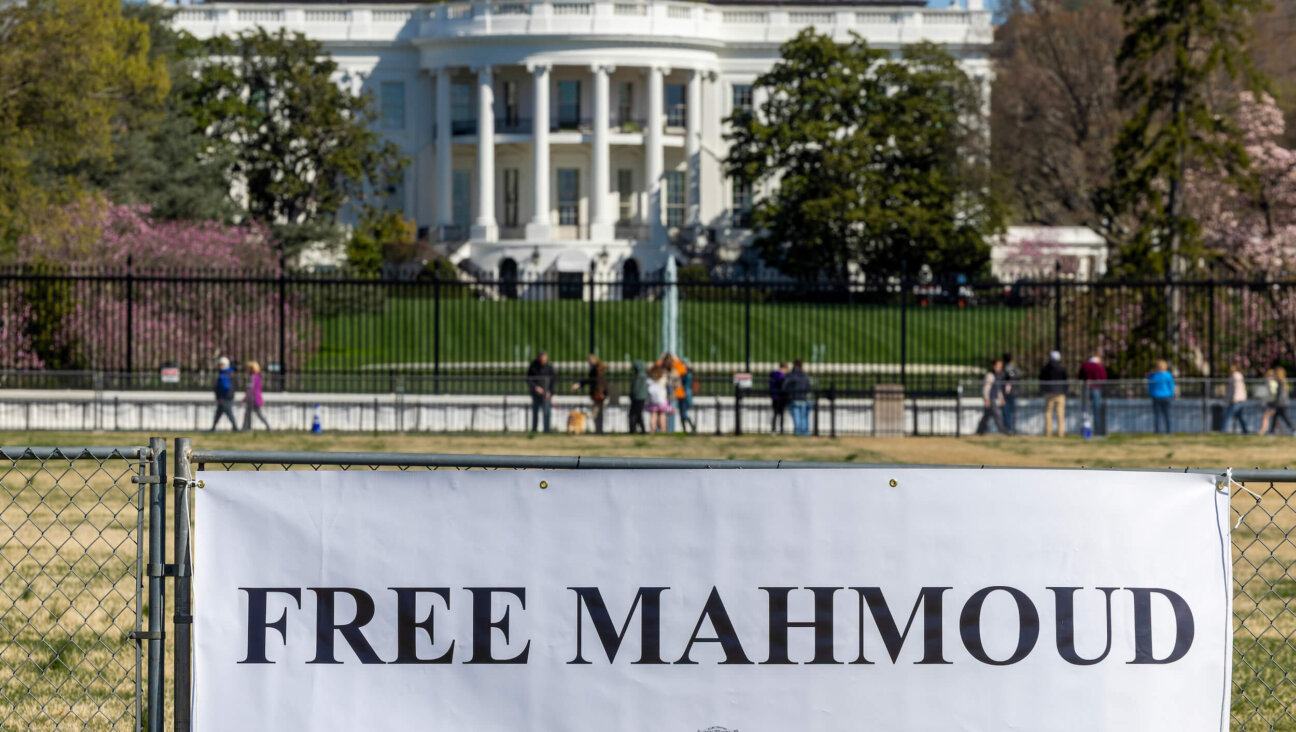Seeing the Obvious
The United States Senate acted last week with rare irony, verging on self-parody, when it abandoned efforts to pass a long-awaited, urgently needed measure on global warming. The legislators’ inaction was timed exquisitely, if unintentionally, to coincide with the latest wave of record-setting storms descending on us these days. While the senators were dithering over climate change and whether it matters, newspapers across the nation and around the globe were reporting on the current and future devastation wrought by the manmade warming of the planet.
This spring has set new records for bad weather: record heat waves along the East Coast, record flooding in the Midwest and tornadoes up and down the Great Plains as far north as Manitoba, all in record-setting intensity. Of course, we’ve all heard these breathless news flashes many times before. But that’s only because each year sets new records as things get worse. Nearly every year for the past decade, seasonal weather phenomena have pushed to new extremes of heat, wet and storm intensity. Areas traditionally known as breadbaskets now suffer alternating bouts of flooding and drought. Ski resorts go for months without snow. Most recently, governments around the world report shortages of usable fresh water, partly because declining snowfall in mountain ranges is drying up the rivers down below.
Skeptics continue to insist that the various weather disasters are isolated incidents, or at worst a cyclical phase. But that argument is getting harder and harder to sustain as scientists keep uncovering new evidence of a global pattern and ordinary people start noticing it in their backyards. Just this past week, newspapers as far apart as Missouri and India carried reports linking extreme weather locally to global climate change.
The stakes in the debate could not be higher. Scientists who study climate change have long predicted that as nations continue to burn fossil fuels and pour carbon dioxide into the atmosphere, the resulting temperature changes would produce just the sort of extreme weather we are now seeing. In the coming decades, the scientists say, the heat resulting from accumulated carbon in the atmosphere will melt the polar ice caps, raise sea levels and flood coastal areas where much of humanity now lives. Farmland will turn to desert, species will face mass extinction and humans will suffer shortages of food and water.
So far, scientists overwhelmingly agree, the predictions are proving accurate, but it’s all happening much faster than anyone had predicted. Hence the urgency of radical cuts in carbon emissions before it’s too late. Activists who claim that the future of the planet is at stake are not exaggerating.
The alarm is worldwide. In India and much of South Asia, “there is a concern that the enhanced greenhouse effect may be affecting extreme weather events such as tropical cyclone frequency, duration and their intensity,” said the Madras-based daily The Hindu, citing a new study by India’s National Institute of Oceanography in Goa. “There is substantial scientific evidence,” The Hindu added, “that the enhanced greenhouse effect is predominantly of anthropogenic origin,” meaning manmade.
And in Stockton, Mo., the daily Cedar County Republican reported this week on the latest wave of tornadoes, hailstorms and flooding across the Midwest, quoting a National Wildlife Federation scientist who insisted that the “trend is absolutely tied to global warming.”
Only in Washington, it seems, is the obvious too difficult to discern. The Senate was preparing to vote last week on a so-called Climate Security Act, authored by Joseph Lieberman, the Connecticut Independent who used to be a Democrat, and John Warner, the Virginia Republican who used to be married to Elizabeth Taylor. The measure aimed for a 70% reduction in America’s greenhouse gas emissions by 2050.
The bill had targets that were so modest, compared with what scientists say is needed to save the planet, that some environmentalists actually opposed it, evidently hoping that some stricter measure might somehow magically appear. Backed by 54 senators, including a handful of Republicans, it had enough votes to pass the Senate but not enough to override President Bush’s promised veto; however, it never got to the Oval Office. Senate Republican leaders mounted a filibuster, and the bill’s backers did not have the 60 votes needed to proceed. In the end, Democratic leaders withdrew the bill to avoid a defeat.
The bill’s backers are hoping they can reintroduce the measure next year in a friendlier political environment. It’s important that voters give them the right conditions. There are many important issues at stake on Election Day, including the economy, health care, the war in Iraq, the war on terrorism and the security of Israel. It’s hardly an exaggeration, though, to say that global warming is the only one that truly matters. What does it mean to fix health care, the job market, democracy or security if we’re all going to be under water?
The Forward is free to read, but it isn’t free to produce

I hope you appreciated this article. Before you go, I’d like to ask you to please support the Forward.
At a time when other newsrooms are closing or cutting back, the Forward has removed its paywall and invested additional resources to report on the ground from Israel and around the U.S. on the impact of the war, rising antisemitism and polarized discourse.
Readers like you make it all possible. We’ve started our Passover Fundraising Drive, and we need 1,800 readers like you to step up to support the Forward by April 21. Members of the Forward board are even matching the first 1,000 gifts, up to $70,000.
This is a great time to support independent Jewish journalism, because every dollar goes twice as far.
— Rachel Fishman Feddersen, Publisher and CEO
2X match on all Passover gifts!
Most Popular
- 1

News A Jewish Republican and Muslim Democrat are suddenly in a tight race for a special seat in Congress
- 2

Fast Forward The NCAA men’s Final Four has 3 Jewish coaches
- 3

Film & TV What Gal Gadot has said about the Israeli-Palestinian conflict
- 4

Fast Forward Cory Booker proclaims, ‘Hineni’ — I am here — 19 hours into anti-Trump Senate speech
In Case You Missed It
-

Culture In a time of tariffs and uncertainty, this is the Jewish word we need to soothe our minds and souls
-

Opinion As Zionist Jews, we must condemn Trump’s campaign to deport students
-

Opinion Trump is cracking down on universities — just like Hitler targeted academics who didn’t bow to his will
-

Fast Forward As Netanyahu arrives in Budapest, Hungary announces exit from International Criminal Court
-
Shop the Forward Store
100% of profits support our journalism
Republish This Story
Please read before republishing
We’re happy to make this story available to republish for free, unless it originated with JTA, Haaretz or another publication (as indicated on the article) and as long as you follow our guidelines.
You must comply with the following:
- Credit the Forward
- Retain our pixel
- Preserve our canonical link in Google search
- Add a noindex tag in Google search
See our full guidelines for more information, and this guide for detail about canonical URLs.
To republish, copy the HTML by clicking on the yellow button to the right; it includes our tracking pixel, all paragraph styles and hyperlinks, the author byline and credit to the Forward. It does not include images; to avoid copyright violations, you must add them manually, following our guidelines. Please email us at [email protected], subject line “republish,” with any questions or to let us know what stories you’re picking up.













